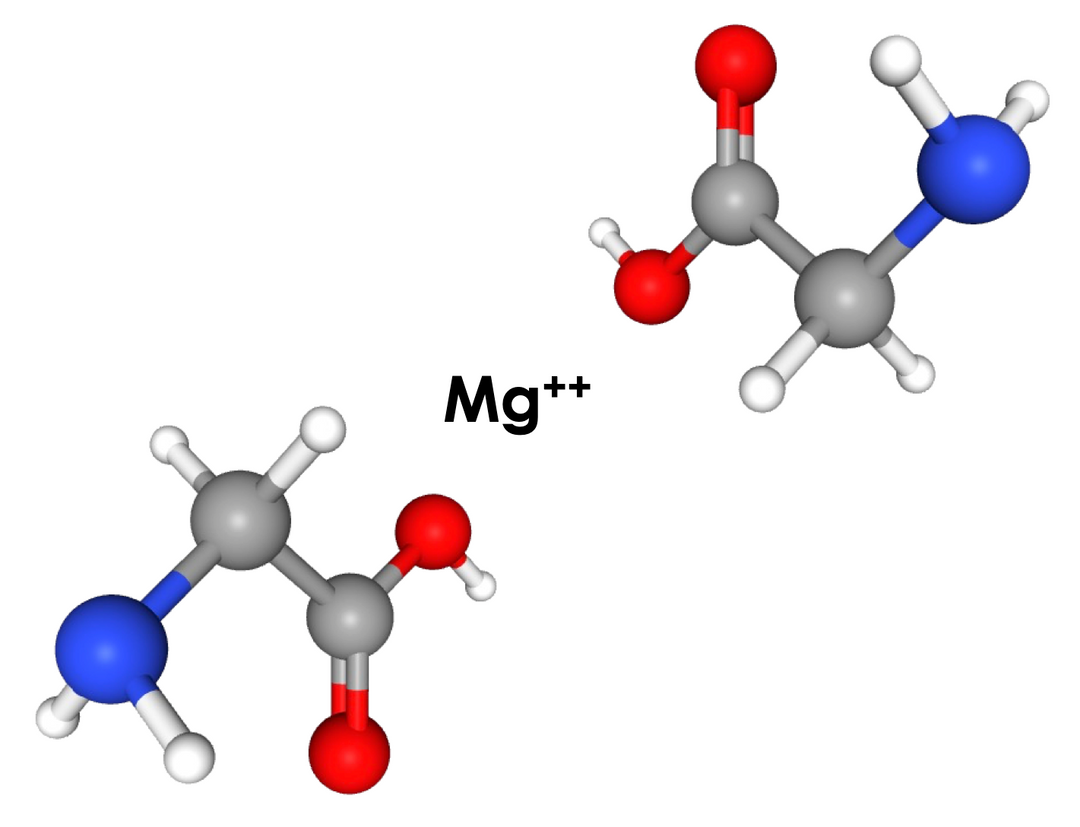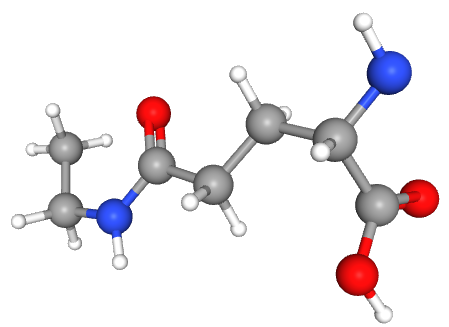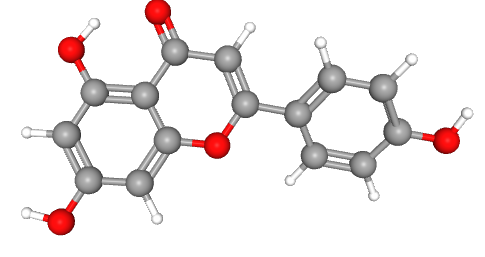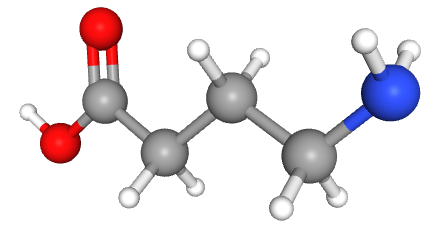Magnesium Glycinate
Magnesium Glycinate is a highly bio-available form of magnesium. Magnesium aides in muscle relaxation and regulates the nervous system. This form combines magnesium with glycine, an amino acid known for its calming properties, which enhances the relaxing properties of magnesium.

Why do we add it?
Muscle Relaxation: Supports proper muscle functioning by regulating the nervous system.
Stress Relief: Reduces anxiety and quiets the mind, offering relief from daily stress.
Gentle on Digestive System: As opposed to other forms of Magnesium this form is especially gentle on the digestive system making it the ideal compound to quiet the nervous system without disrupting the gastric system.
How does it work?
Magnesium Glycinate is a highly bio-available form of Magnesium for the body. Magnesium is a vital mineral involved in over 300 enzymatic reactions, supporting nerve and muscle function, heart health, immune system, and energy production. It promotes muscle relaxation and calms the nervous system through regulating neurotransmitters in the brain. This reduces neural excitability and helps the mind to relax and get ready for sleep. Magnesium also aids melatonin production to ensure that the body receives signals to sleep at the right time.
See our blog post on Magnesium and Sleep for more information.

L-Theanine
L-Theanine is an amino acid found primarily in tea leaves, especially in green tea, as well as in certain mushrooms. It is known for its calming effects without causing drowsiness. This makes it the ideal compound for stress relief, relaxation, and improved focus.
Why do we add it?
Promotes Relaxation: Calms the mind by increasing alpha brain waves, inducing a relaxed yet alert state.
Reduces Anxiety and Stress: Helps manage stress and reduces symptoms of anxiety without sedation.
Improves Sleep Quality: Promotes restful sleep by relaxing the nervous system without making you feel groggy.
Enhances Focus and Attention: Boosts cognitive performance, improving concentration and mental clarity for the next day.
Supports Mood Balance: Regulates serotonin, dopamine, and GABA levels, contributing to emotional balance.
How does it work?
L-Theanine increases the production of alpha brain waves, which are associated with a relaxed mental state, similar to what is experienced during meditation. It modulates the levels of key neurotransmitters like serotonin, dopamine, and GABA, helping to reduce stress and anxiety while enhancing mood and focus. Additionally, L-Theanine can counteract the stimulating effects of caffeine, making it the ideal counteragent to avoid jitteriness.
Apigenin
Apigenin is a naturally occurring flavonoid found in various plants, such as chamomile, parsley, and celery. It is renowned for its anti-inflammatory, antioxidant, and calming properties. Apigenin interacts with various receptors in the brain, contributing to its ability to promote relaxation, improve sleep, and reduce anxiety. It also shows potential in cognitive health and anti-cancer research due to its biological activity.

Why do we add it?
Promotes Relaxation: Apigenin has calming properties that help reduce anxiety and stress levels.
Improves Sleep Quality: It can promote sleep by binding to receptors that induce relaxation, making it a natural sleep aid.
Anti-Inflammatory and Antioxidant: Apigenin helps combat oxidative stress and inflammation, which may contribute to improved overall health and reduced risk of chronic diseases.
Supports Brain Health: Shows potential in protecting against cognitive decline by enhancing brain function and reducing neuro-inflammation.
How does it work?
Apigenin exerts its calming effects by binding to benzodiazepine receptors in the brain, similar to how certain anxiety-reducing medications work, but without the side effects or risk of dependency.
As a flavonoid, Apigenin exhibits antioxidant properties by neutralizing free radicals and reducing oxidative stress, which supports cellular health. Its anti-inflammatory effects contribute to the maintenance of brain health by reducing neuroinflammation, which is linked to cognitive decline.

GABA
GABA (Gamma-Aminobutyric Acid) is a neurotransmitter that plays a critical role in the central nervous system by inhibiting neural activity, helping to reduce nerve excitability. It is the primary inhibitory neurotransmitter in the brain and as such helps to counteract the excitatory signals that cause stress, anxiety, and sleeplessness.
Why do we add it?
Calms the mind: GABA calms the nervous system by inhibiting overactivity in the brain, leading to increased calmness.
Relaxation: GABA’s inhibitory effects on neural activity help induce a calm state of mind, reducing overthinking.
How does it work?
GABA works by binding to GABA receptors (specifically GABA-A and GABA-B) in the brain, which slows down the firing of neurons and reduces excitatory signals. This inhibitory action helps maintain a balance between excitatory and inhibitory neurotransmission to promote a calm and relaxed state. A calm and relaxed brain is less likely to experience stress or anxiety, which improves focus, relaxation, and sleep quality.
GABA’s ability to reduce neural excitability makes it specifically effective to improve calmness. It is thought to reduce cortisol levels, the hormone responsible for stress, which contributes to its calming and relaxing effects.
Though GABA is naturally produced in the brain, supplementation helps enhance its calming effects, especially in individuals with GABA deficiencies or those suffering from conditions related to heightened neural activity..






